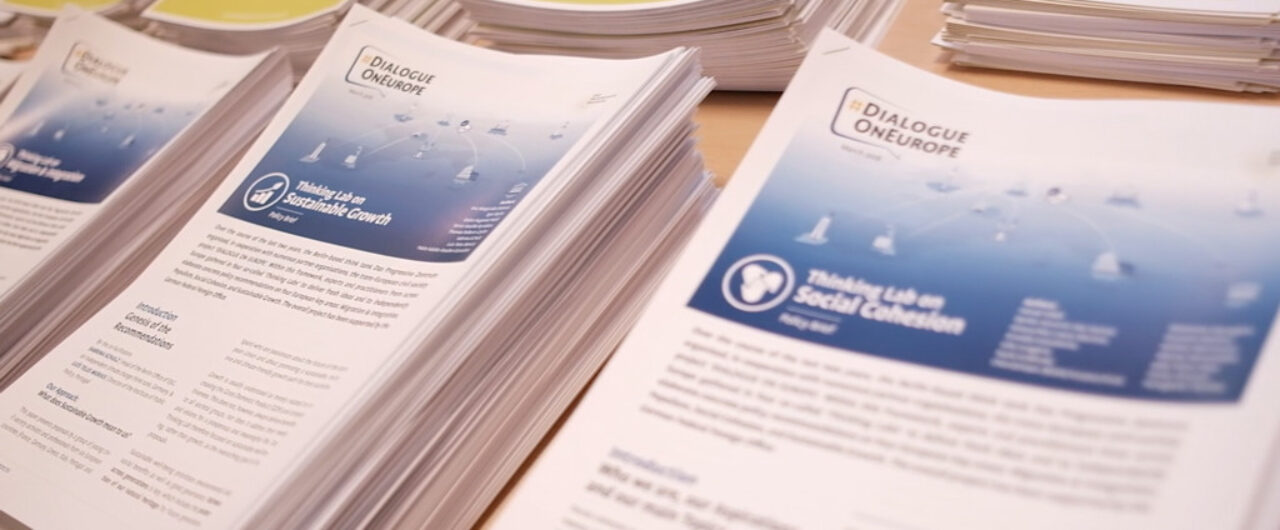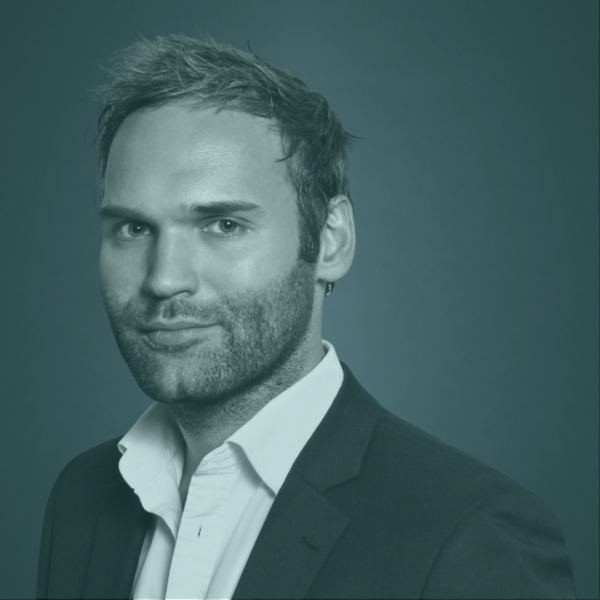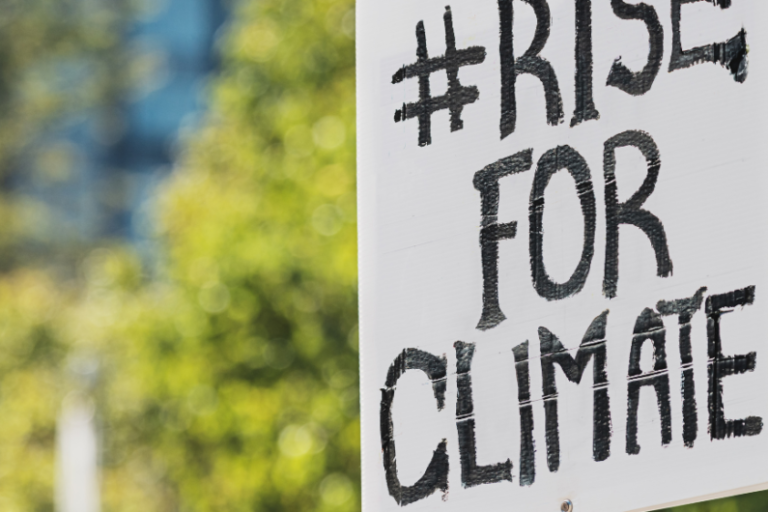Over the course of the last two years, civil society experts and practitioners from across Europe gathered in four DIALOGUE ON EUROPE Thinking Labs to deliver fresh ideas and to independently elaborate concrete policy recommendations on four European key areas: Migration & Integration, Populism, Social Cohesion, and Sustainable Growth. Discover the summary of their proposals and the full-length policy briefs below.
Available for download:
- Policy brief on Migration & integration
- Policy brief on Populism
- Policy brief on Social cohesion
- Policy brief on Sustainable growth
Executive Summaries
Thinking Lab on Migration & Integration
Main Assumptions
As migration and integration have become a concern for all of Europe, it has shaken the cohesion of the EU and its member states to the core. It is indispensable to create a genuinely European approach to efficiently tackle the challenges which migration fluxes pose.
Summary of the Thinking Lab’s Work
As migration and integration have become a concern for all of Europe, it has shaken the cohesion of the EU and its member states to the core. It is indispensable to create a genuinely European approach. Only in this way is it possible to efficiently tackle the challenges which tremendous migration fluxes pose. Hence, our objective as a group has been to contribute within the work of three clusters ─ Integration policy, Human rights, asylum & citizenship, Managing migration flows ─ to the debate with a problem analysis at the local, national and European level, and to give concrete, effective and feasible policy recommendations to enhance migration and integration policy within the EU and its member states.
List of Policy Recommendations
- Install a European asylum governance system on a two-fold procedure
- Revise the EU border management system
- Open up legal avenues for migration
- Improve dialogue relations – inside and outside the EU
- Harmonise legislation and standards across the EU
- Create an EU agency enforcing and supervising migration regulations and human rights standards
- Grant full citizenship rights to descendants of migrants
- Raise awareness about the importance of cultural and gender factors for integration
- Strengthen support for economic and social inclusion at the local level
Read the full policy brief here.
Thinking Lab on Populism
Main Assumptions
Populism cannot be defeated by merely defending the status quo. Rather, it requires system transformations, alternative social, economic and political paradigms as well as new narratives.
Summary of the Thinking Lab’s Work
When talking about populism, we also talk about how to reinvent our political system, in a way that makes it more adaptive, while serving and inspiring its citizens. For this to happen, broad alliances across societies and across countries are required, in order to fight populism at its root. The main assumption underlying our nine recommendations is that populism cannot be defeated by merely defending the status quo. Rather, it requires system transformations, alternative paradigms, and new narratives to combat the systemic roots of populism.
List of Policy Recommendations
- Rebuild trust in democratic institutions and decision-making processes
- Normalise change in politics and provide the infrastructure to adapt to it
- Make the EU a driver of social mobility and cohesion
- Implement and communicate decisions in a more citizen-centred manner
- Foster adaptive, agile, and modern processes in democratic institutions
- Foster a European understanding of democracy and the rule of law
- Develop bold and distinctive political visions for a common future
- Focus on inclusive community building and participation
- Promote an open, inclusive and fair public debate on key issues
Read the full policy brief here.
Thinking Lab on Social Cohesion
Main Assumptions
Social cohesion is indispensable for the sense of community between and within the EU member states. This does not only refer to economic factors, but also to social factors such as social participation, especially for migrants and asylum seekers.
Summary of the Thinking Lab’s Work
We consider social cohesion as an indispensable prerequisite for the continued existence of the European Union. Unfortunately, especially since the breakout of the economic and financial crisis in 2008, social cohesion in Europe has come under pressure due to cutting spending for welfare, social, and education policy. Consequently, our Thinking Lab elaborated ideas in four sub-groups on how to counteract the increase of social inequality and its consequences both on national cohesion and intra-European solidarity.
List of Policy Recommendations
- Strengthen vocational education and training systems
- Foster communication between students, graduates and businesses
- Create intergenerational working tandems
- Set up a European Business Empowerment Scheme (EBES) to support small enterprises
- Secure intergenerational justice in decision-making
- Financially and logistically support local groups and connect them at the European level
- Increasingly employ people with a migration background in both the public and private sectors
Read the full policy brief here.
Thinking Lab on Sustainable Growth
Main Assumptions
Traditional concepts of growth and wealth do not always deliver benefits to all societal groups. The principle of sustainable well-being, which also includes social and environmental factors, is therefore better suited to measure prosperity.
Summary of the Thinking Lab’s Work
Traditional concepts of growth and wealth such as the GDP do not always deliver benefits to all societal groups. Our Thinking Lab therefore focused on sustainable well-being, rather than growth, as the overarching goal of its proposals. The first focus of our work laid upon the background of debt, inequality, and unemployment in Southern Europe. The second emphasis was climate, energy and environmental policy, because a Europe exposed to uncontrolled climate change will not be able to deliver sustainable well-being for its citizens.
List of Policy Recommendations
- Make social investment a priority of the post-2020 Multiannual Financial Framework debate
- Foster Local Energy Communities (LECs) especially in structurally weak regions throughout Europe
- Strengthen the concept of ‘Smart Islands’ through financial support
- Expand the European Commission’s role as a Governance Hub for Climate Change Adaptation
- Promote renewable energies in Europe and better connect electricity grids
- Promote e-mobility (Europe-wide charging station network) and foster the EU industrial policy
Read the full policy brief here.







